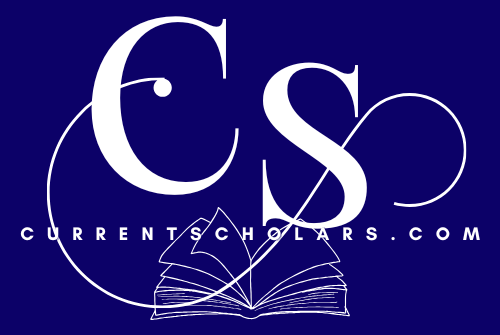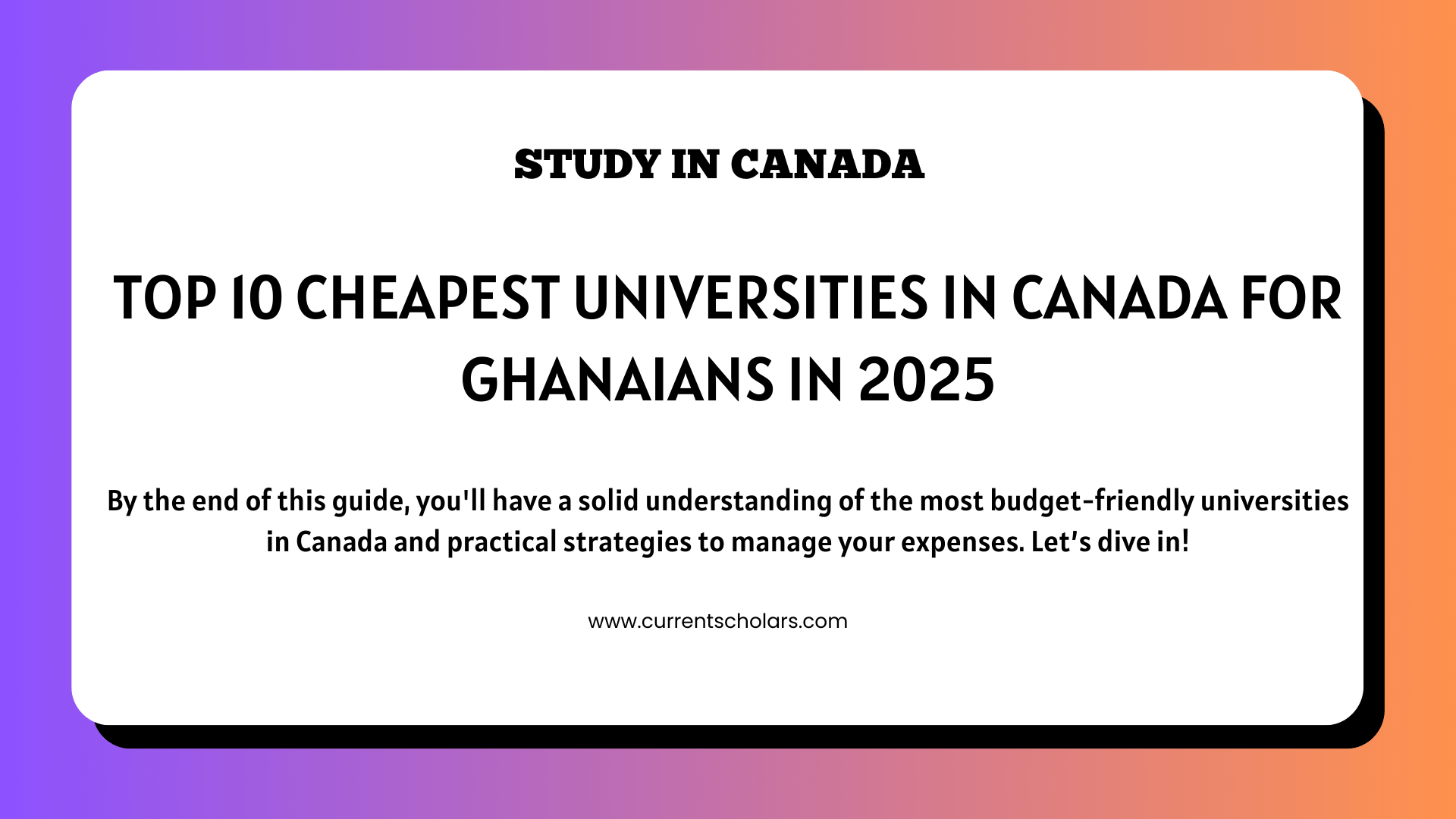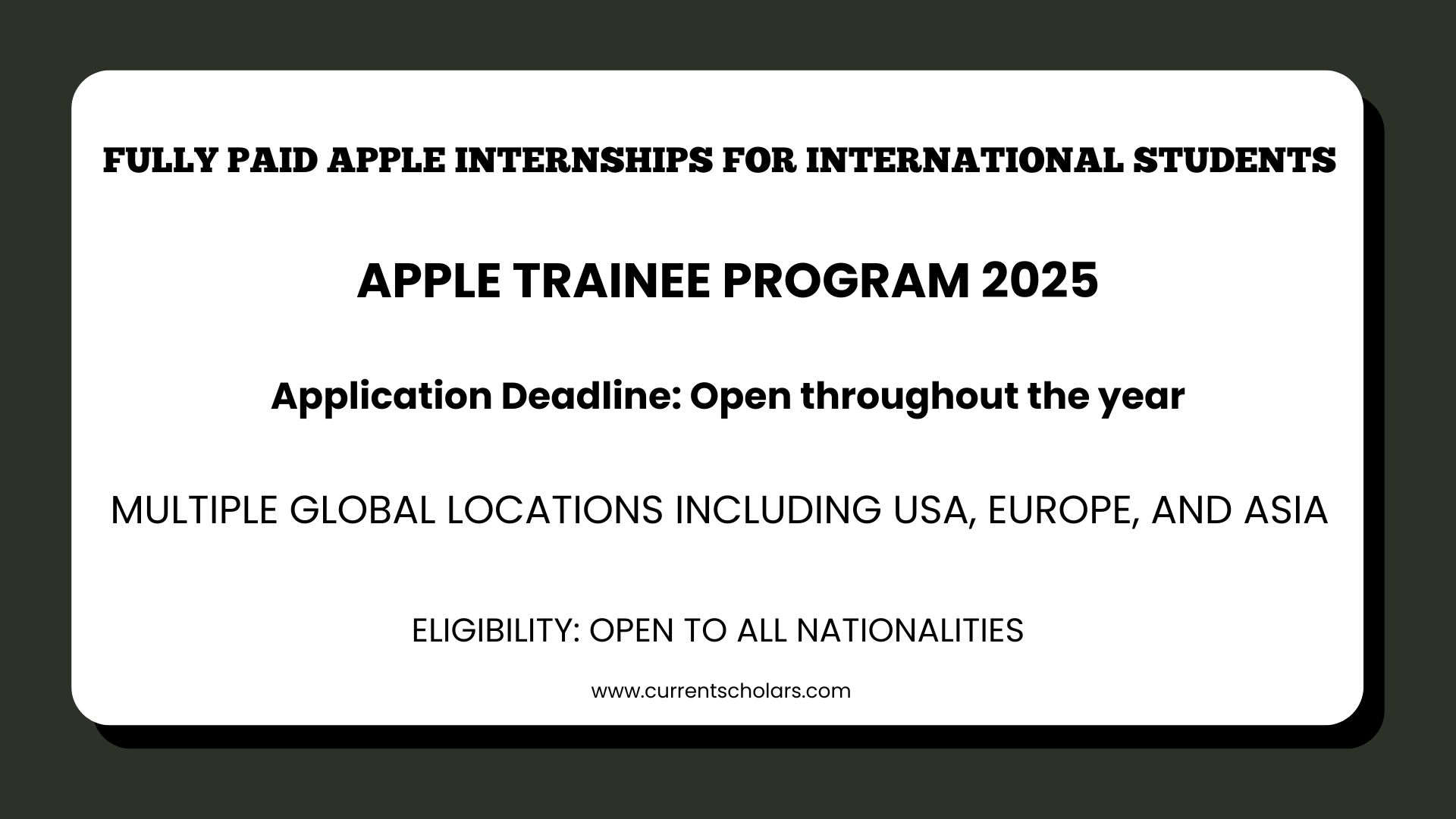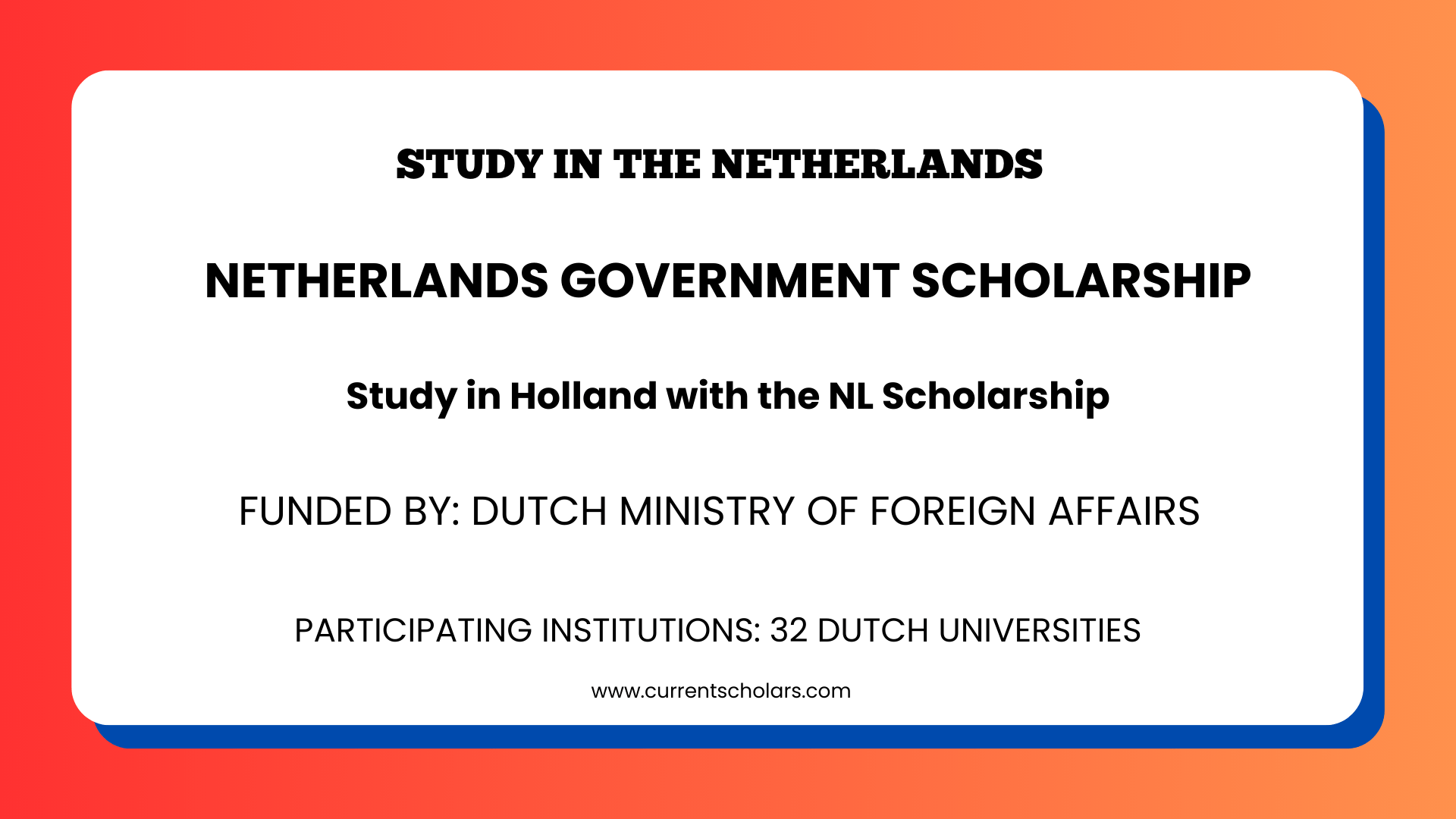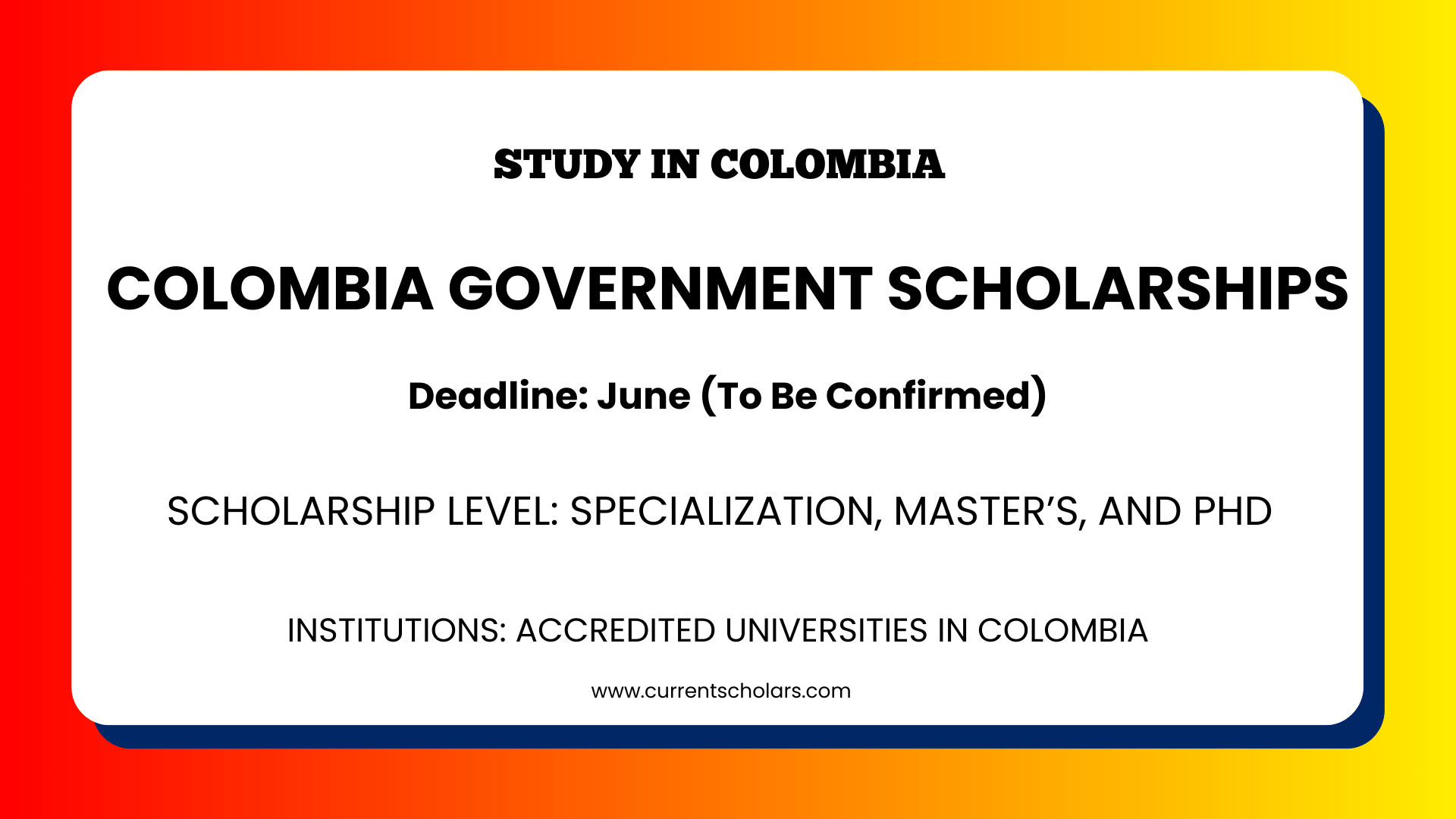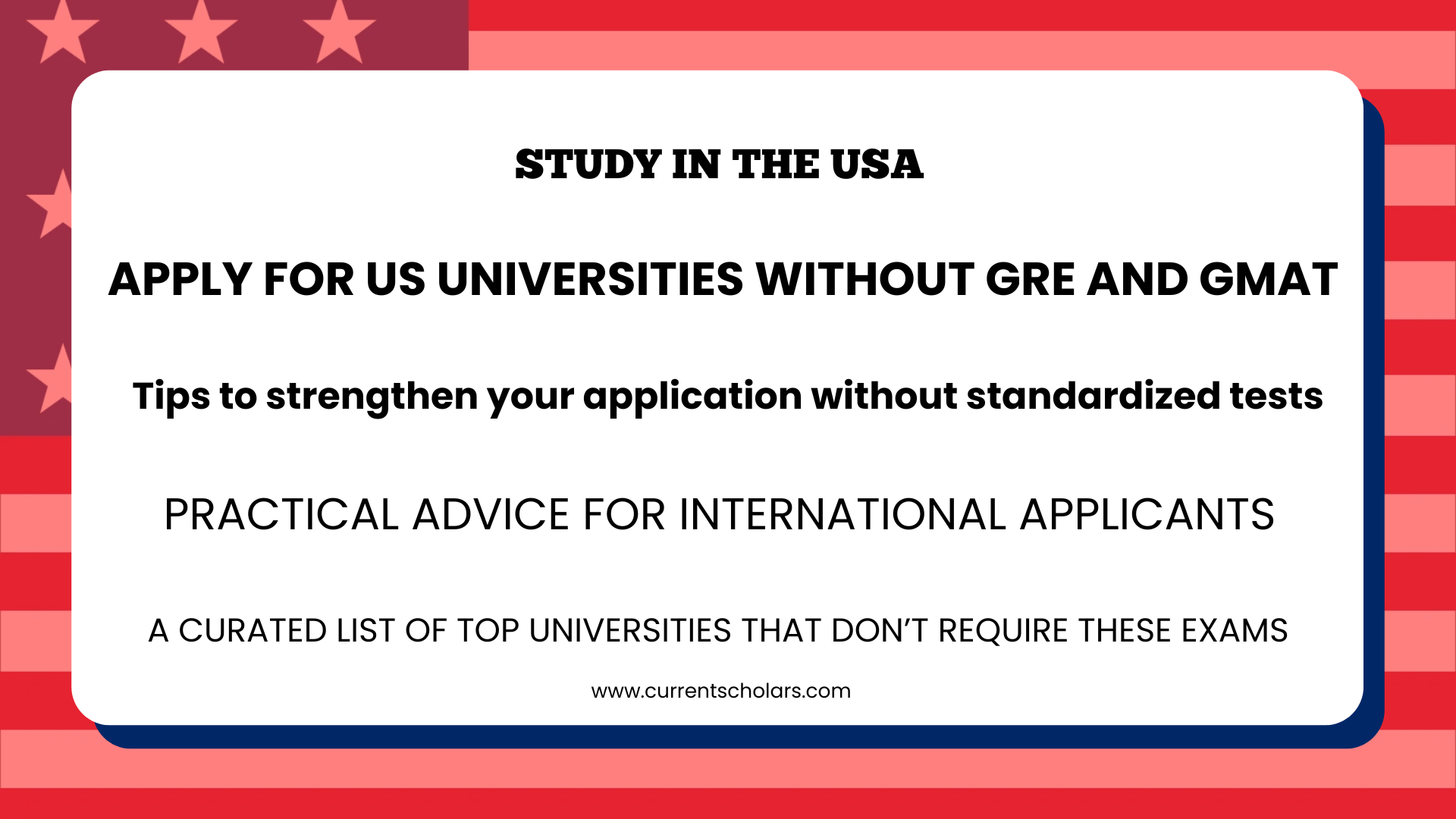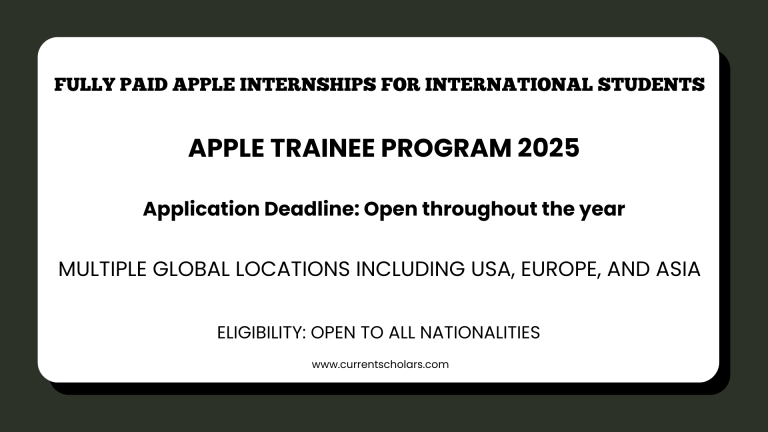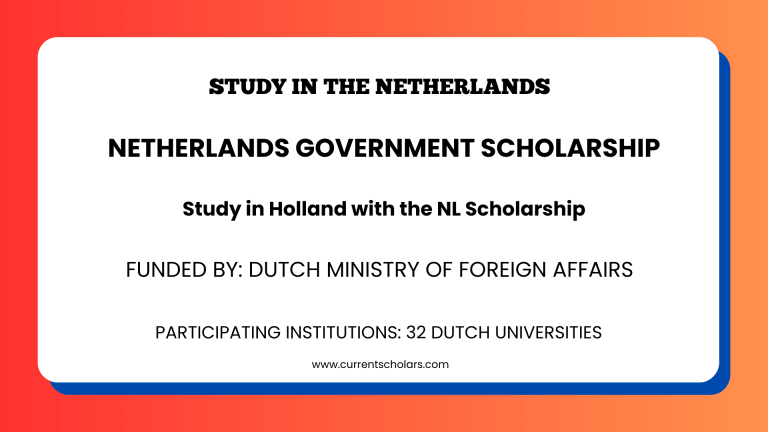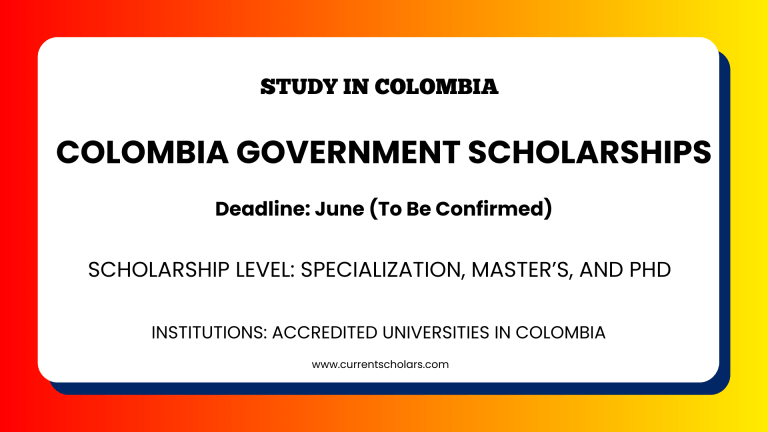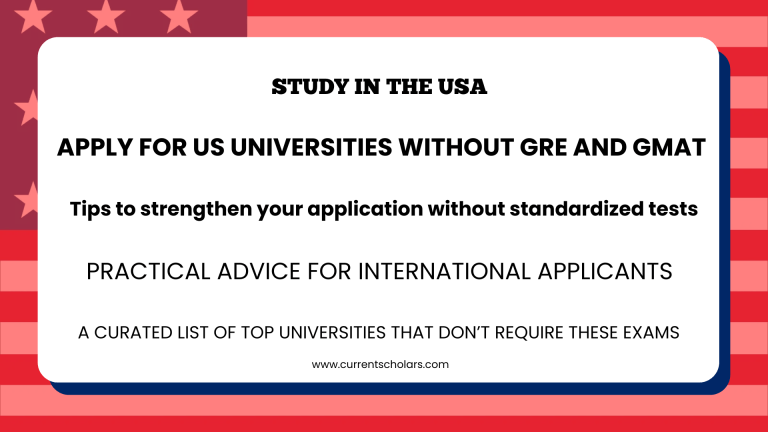Canada has become a prime destination for Ghanaian students seeking high-quality education abroad. With its welcoming immigration policies, multicultural environment, and globally recognized universities, it is no surprise that many Ghanaians aspire to study in Canada. However, the cost of tuition and living expenses can be a major barrier.
If you’re searching for affordable study options, this guide is for you. We’ll explore the top 10 cheapest universities in Canada for Ghanaians, breaking down tuition costs, scholarship opportunities, and cost-effective provinces for international students.
By the end of this guide, you’ll have a solid understanding of the most budget-friendly universities in Canada and practical strategies to manage your expenses. Let’s dive in!
Table of Contents
-
Why Canada Is a Top Destination for Ghanaians
-
What Makes a University Affordable?
-
Top 10 Cheapest Universities in Canada for Ghanaians
-
Scholarships and Financial Aid for Ghanaians in Canada
-
Cheapest Provinces in Canada for International Students
-
Application Process for Ghanaians
-
Work and Study Opportunities in Canada
-
Conclusion
Why Canada Is a Top Destination for Ghanaians
1. High-Quality Education
Canadian universities consistently rank among the best globally. Institutions like the University of Toronto, McGill University, and the University of British Columbia are recognized for their strong academic programs and research opportunities.
2. Affordable Tuition Compared to Other Countries
Compared to studying in the UK, USA, or Australia, Canada offers relatively affordable tuition fees, making it a cost-effective option for Ghanaian students.
3. Work Opportunities for International Students
Canada allows international students to work up to 20 hours per week during the academic term and full-time during holidays. After graduation, students can apply for the Post-Graduation Work Permit (PGWP), which provides a pathway to permanent residency.
4. Safe and Multicultural Environment
Canada is one of the safest countries in the world and has a diverse population, making it easy for international students to feel at home.
What Makes a University Affordable?
Several factors contribute to the affordability of a university:
✅ Low Tuition Fees – Schools with lower annual tuition rates are ideal for students on a budget.
✅ Scholarship Opportunities – Universities offering scholarships for international students can help reduce costs.
✅ Low Cost of Living – Choosing universities in provinces with affordable housing and transportation reduces overall expenses.
Now, let’s explore the cheapest universities in Canada for Ghanaians in 2025.
Top 10 Cheapest Universities in Canada for Ghanaians
| University | Location | Annual Tuition (CAD) | Scholarship Opportunities | Estimated Living Costs (CAD) |
|---|---|---|---|---|
| Memorial University of Newfoundland | St. John’s, Newfoundland | $12,000 | Memorial Entrance Scholarships | $8,500 |
| Brandon University | Brandon, Manitoba | $14,000 | Automatic Entrance Scholarships | $9,000 |
| University of Manitoba | Winnipeg, Manitoba | $15,000 | International Undergraduate Student Award | $10,500 |
| University of Saskatchewan | Saskatoon, Saskatchewan | $17,000 | International Excellence Awards | $9,500 |
| University of Prince Edward Island | Charlottetown, PEI | $13,000 | UPEI Entrance Awards | $9,500 |
| Cape Breton University | Sydney, Nova Scotia | $16,000 | President’s International Scholarship | $10,500 |
| Algoma University | Sault Ste. Marie, Ontario | $13,000 | International Bursary Program | $9,500 |
| University of Regina | Regina, Saskatchewan | $15,000 | International Entrance Scholarship | $10,000 |
| Thompson Rivers University | Kamloops, British Columbia | $17,000 | Academic Excellence Awards | $12,000 |
| University of Windsor | Windsor, Ontario | $18,000 | Open Entrance Scholarship | $11,000 |
These universities offer a balance of affordable tuition, scholarship opportunities, and manageable living costs, making them great options for Ghanaians seeking to study in Canada.
Scholarships and Financial Aid for Ghanaians in Canada
Many Canadian universities offer scholarships specifically for international students. Here are some options:
Scholarships for African Students
-
MasterCard Foundation Scholars Program – Covers full tuition and living expenses.
-
Vanier Canada Graduate Scholarships – Supports high-achieving postgraduate students.
General Scholarships for International Students
-
Lester B. Pearson International Scholarship – Full tuition waiver for undergraduate students.
-
Canada Graduate Scholarships (CGS-M) – Supports master’s students in research programs.
Tips for Scholarship Applications
✅ Start early and track deadlines.
✅ Write a compelling personal statement.
✅ Obtain strong recommendation letters.
✅ Ensure all documents are well-prepared.
Cheapest Provinces in Canada for International Students
Some provinces in Canada have significantly lower tuition and living costs than others:
✅ Newfoundland and Labrador – Home to Memorial University, one of Canada’s most affordable institutions.
✅ Manitoba – Low tuition and affordable living make this a great choice.
✅ Saskatchewan – Lower tuition and plenty of job opportunities for students.
Studying in these provinces can save you thousands of dollars annually.
Application Process for Ghanaians
To apply for a Canadian university, follow these steps:
1. Choose a University and Program
Select a university that fits your budget and academic goals.
2. Prepare Your Documents
Gather:
✅ Academic transcripts
✅ Passport
✅ English proficiency test results (IELTS/TOEFL)
✅ Statement of purpose
3. Submit an Online Application
Most universities have online portals for applications.
4. Apply for a Student Visa
After receiving an admission letter, apply for a study permit through the Canadian Immigration website.
Work and Study Opportunities in Canada
Part-Time Work
International students can work up to 20 hours per week during semesters and full-time during breaks.
Co-op Programs
Some universities offer co-op programs that allow students to gain work experience while studying.
Post-Graduation Work Permit (PGWP)
After graduation, students can apply for a PGWP, allowing them to work in Canada for up to three years.
Studying in Canada is a dream for many Ghanaians, but it doesn’t have to be expensive. By choosing affordable universities, applying for scholarships, and studying in cost-effective provinces, you can achieve your goal without excessive financial strain.
Are you ready to start your journey to Canada? Begin researching, apply early, and take advantage of scholarship opportunities to make your dream a reality!
Need More Help?
If you need assistance with applications, visa processes, or scholarships, check out our latest guides on affordable study options in Canada.
